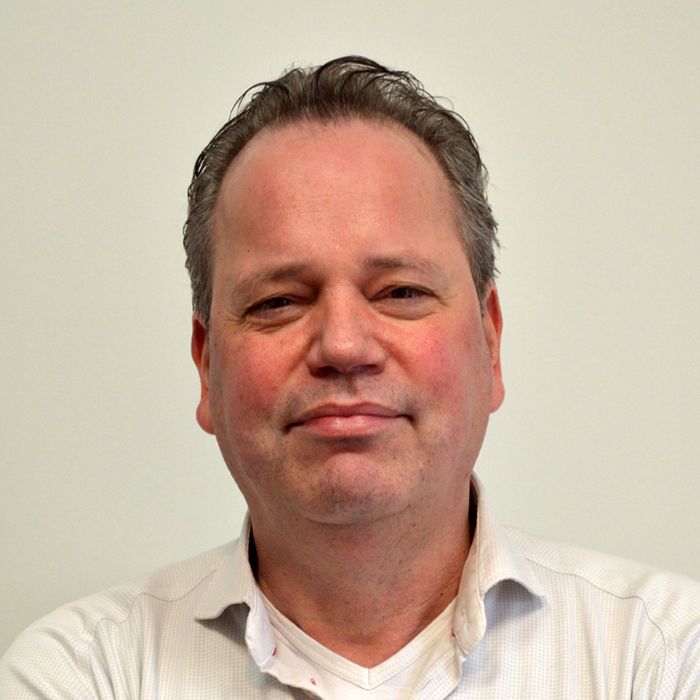Challenges and the Future of Databases According to Paul Vermeulen

Author: Clariska van Delft
Marketing Consultant @Quistor
Quistor offers database support services on Oracle and Microsoft SQL Server databases, both with or without JD Edwards as an application. I had an interview with Paul Vermeulen to find out more about what he and his team do on a daily basis. I was also curious to hear how Paul, an expert in the field, sees the future of databases.
What is your role in Quistor?
I am a database administrator, which means I have a wide variety of tasks. First of all, I install database software and create databases. Maintaining databases is also an important part of my job. This includes lots of different tasks, like making sure the security of the databases is in order. I make sure to assign the right users, roles and permissions for each database. But I also develop backup, restore and failover scenarios.
Other things I do on a regular basis are resolving performance issues, creating queries and tables, correcting data and resolving database space issues. Moreover, I create reports about database performances.
Another important part of our DBA team's job is moving databases to the Cloud, Oracle Exadata or our Quistor Exahotel X8-2. We also upgrade databases to the newest versions or other techniques for Oracle and SQL server databases.
Lastly, I perform database performance audits. In most cases, these audits are requested by clients who want to know why their database is slow.

Tell me something more about your team. How many are you and how do you work together?
Our database support team consists of ten people in total. We are situated in three different countries: the Netherlands, Spain and the Czech Republic. Interestingly enough we are all men, maybe women don’t like databases that much!
The projects we work on are usually not assigned to only one person. Instead, we work on one project with several others from our team. This means we can take on each other’s work if someone is sick or goes on holiday.
The fact that I work on different projects at the same time is something I love about my job. It keeps it very interesting and fun.
What are your most interesting projects?
What I find most interesting is setting up SQL server environments with the newest techniques. This is actually something I’m working on at the moment. One of my current clients is moving from Microsoft SQL Server 2008 to SQL Server 2017 with Availability Groups.
Availability Groups means that a database uses two or more servers. The advantage of this is that when the primary server fails it is automatically taken over by the secondary server. This is called a failover mechanism. Because they have around one hundred databases, it will take me more or less one month to finish the project, combined with the other projects I’m working on right now.
Besides that, I love learning more about Oracle Exadata. I think this will be the future for Oracle databases. It is a great technique that is very stable. It works differently than original databases. The great advantage of Exadata is that both a transactional system and data warehouse system can work together on one machine, something that original databases can’t do as easily without bringing down the performance of the database. I really want to learn a lot more about Exadata, because I see a lot of potential in it for the future.
How do you think Quistor distinguishes itself from the competitors?
I think we distinguish ourselves from our competition because Quistor has both functional JD Edwards knowledge and knowledge about the underlying database. This means we can combine it as a company, which is a huge advantage.
For example, someone who develops something in JD Edwards often doesn’t know how it manifests itself in the database. As a result, this person might develop something that performs very poorly. We sometimes see this happening, and as database experts, we can see what needs to be changed to make it perform better. But a JD Edwards developer usually doesn't have the right knowledge for that.
Another area in which we distinguish ourselves is the fact that we work with Oracle Exadata and we have our own Exahotel. These are the latest techniques and it’s great to have them in-house.
In addition, I also think our knowledge level is very high. For example, I have been working with databases since 1995. I have even worked with the first version of Microsoft SQL Server. Some of my colleagues have also been working in this field for a very long time and are experts by now.
What are the biggest challenges in the database industry?
More and more databases are moved to the Cloud to get safer systems, better performance, scalability and so on. I think another challenge is combining the different transactional systems and data warehousing together in one system.
Where do you see the future of databases?
I think in the future it will be even more important to save data in a structured way. This is crucial if you need to make decisions in your company. You can apply all kinds of reports and analytics on data of a company to see what happens with customers, how to improve the company’s strategy and what decisions need to be taken.
And besides that, as I said, more databases will be moved to the Cloud. This development is good for companies, but it also means that databases will be more and more autonomous and database administrators won't be needed anymore. But luckily it will take a while before we get to that!
Thank you very much for this interview, Paul! We wish you good luck with your current and future projects.
Before you go
Feel free to ask us any question, ask for more information or simply say hello in this contact form.
